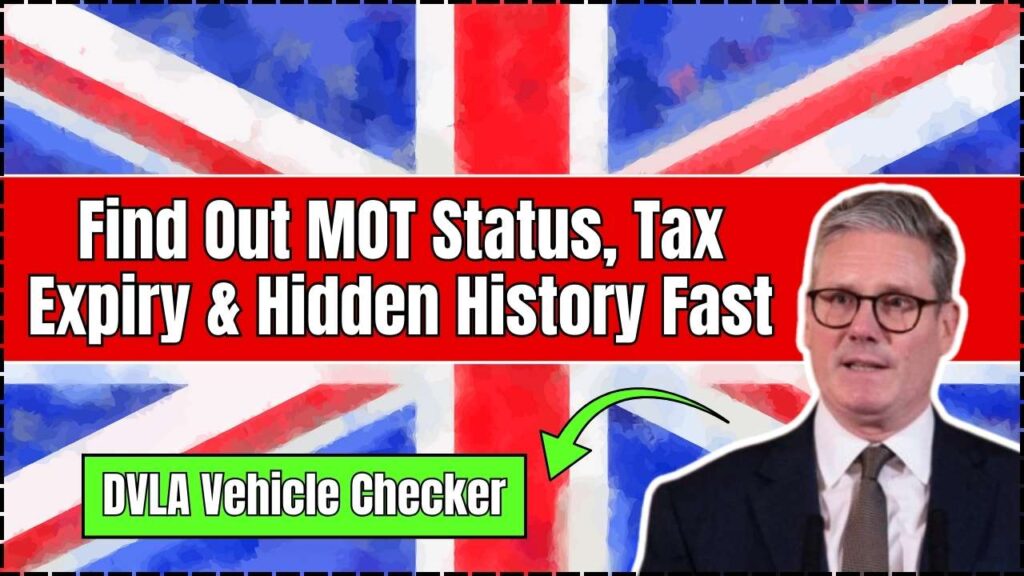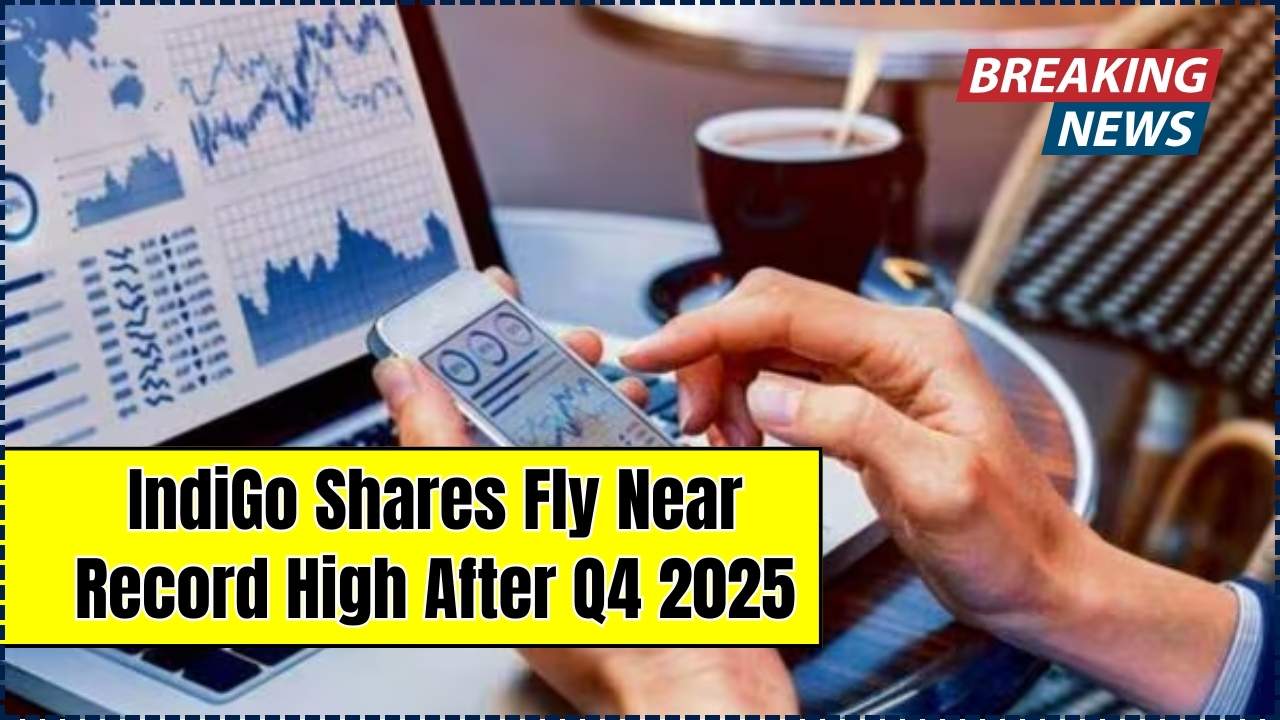DVLA Vehicle Checker: Whether you’re buying a used car, selling a vehicle, or simply managing your own, the DVLA Vehicle Checker is a vital online resource for UK motorists. With this free tool, you can instantly uncover a vehicle’s MOT status, tax expiry, and even deeper insights such as outstanding finance, stolen reports, mileage discrepancies, and write-off history. In today’s digital age, staying informed about a vehicle’s legal and safety status is not just wise—it’s essential.

Whether you’re a first-time driver, experienced vehicle owner, or part of a business fleet management team, the DVLA tools make it simple to stay on top of compliance. With the rise of online car sales and digital paperwork, it’s more important than ever to verify that vehicles are safe, legal, and worth the investment. This article offers a comprehensive walkthrough on how to use the DVLA Vehicle Checker efficiently and highlights additional tools for in-depth vehicle history reports.
DVLA Vehicle Checker
| Feature | Details |
|---|---|
| Check MOT Status | Free via gov.uk/check-mot-history |
| Check Tax Expiry | Free via gov.uk/check-vehicle-tax |
| Access Full History | Comprehensive reports via CarAnalytics and TotalCarCheck |
| Data Required | Vehicle registration number (number plate) |
| Extra Features | Write-off alerts, mileage validation, finance, theft records |
The DVLA Vehicle Checker is a user-friendly, powerful tool for anyone buying or maintaining a vehicle in the UK. Combined with professional history check services, it forms a complete picture of a vehicle’s legal and mechanical background. Whether you’re trying to avoid costly surprises or confirm your car’s compliance, these tools give you the information you need.
Take advantage of the free and low-cost resources available online. In just a few minutes, you can make smarter, safer, and more confident driving decisions.
Why the DVLA Vehicle Checker Matters
As a responsible car owner or buyer, knowing a vehicle’s background is critical. The DVLA Vehicle Checker gives you free, fast access to:
- MOT status and test history
- Vehicle tax status and expiry date
- Roadworthiness records and legal SORN status
These checks aren’t just about legal compliance. They provide insights into how a vehicle was maintained, whether it’s safe to drive, and whether you might be buying someone else’s financial or mechanical problems.
According to the RAC, over 30% of vehicles on UK roads had at least one overdue safety check in 2023.
DVLA Vehicle Checker: Check a Vehicle’s MOT Status
The MOT (Ministry of Transport) test is a mandatory annual inspection for cars over three years old. It evaluates brakes, lights, tyres, suspension, emissions, and more to ensure the vehicle meets road safety and environmental standards.
DVLA Vehicle Checker Guide to MOT Checks
- Go to gov.uk/check-mot-history
- Enter the vehicle’s registration number
- Confirm the make and model when prompted
- View the current MOT status and detailed history
You will see:
- MOT expiry date
- Pass/fail history with exact dates
- Advisory notes (e.g., worn tyres, oil leaks)
- Mileage readings at each test
Tip: Be cautious of cars with inconsistent mileage. It may suggest tampering or poor record-keeping.
Reading Between the Lines
A car with frequent failures, repeated advisories, or long gaps between MOTs may signal neglect. On the other hand, a clean record with routine passes often indicates a well-maintained vehicle.
Check Your Vehicle Tax Status
Driving without paying vehicle tax can result in fines of up to £1,000 and even vehicle clamping. Luckily, verifying your car’s tax status takes under a minute.
Vehicle Tax Check Instructions
- Go to gov.uk/check-vehicle-tax
- Input your registration number
- Review:
- Whether the vehicle is currently taxed
- Expiry date
- Whether it is under SORN (Statutory Off Road Notification)
Set Automatic Tax Reminders
Avoid forgetting renewal deadlines by:
- Signing up at gov.uk/vehicle-tax-reminders
- Opting for text or email alerts
- Setting up a Direct Debit for automatic renewals
Many fines occur due to simple forgetfulness. Automate your reminders to stay compliant.
Going Deeper: How to Reveal a Car’s Hidden History
The DVLA checker covers MOT and tax, but what about deeper risks? Before purchasing a vehicle, consider running a comprehensive vehicle history check through trusted third-party providers.
What a Full Vehicle History Check Reveals
- Outstanding finance agreements
- Insurance write-off category (e.g., Cat S or N)
- Stolen vehicle status
- Scrappage records
- Number of previous owners
- Color or plate changes
- Export or import history
- Logbook discrepancies
Services like CarAnalytics and HPI Check offer these reports, often starting from £9.99.
Buying a car with undisclosed write-off status or unpaid finance can lead to repossession or insurance denial.
When to Use a Paid Check
Use paid checks when:
- You’re buying a car privately or from an unknown seller
- You notice inconsistencies in the MOT or tax records
- The car seems priced unusually low for its model and year
Run a Full DVLA and History Check in 5 Easy Steps
- Collect the Vehicle Registration Number: You can find this on the number plate or in the advertisement.
- Use Free DVLA Tools:
- Visit gov.uk/check-mot-history
- Visit gov.uk/check-vehicle-tax
- Review Key Details:
- Note any advisory issues
- Check SORN declarations
- Confirm the MOT expiry window
- Order a Full History Report:
- Choose a provider: CarAnalytics or TotalCarCheck
- Pay the small fee for peace of mind
- Compare and Make an Informed Decision: Use the combined insights to decide whether the car is roadworthy, safe, and fairly priced.
Case Study: How a Quick Check Saved £3,000
James, a first-time car buyer from Bristol, was about to purchase a 2015 Ford Fiesta for £4,500. Before closing the deal, he checked the MOT history and found multiple failures over the past 3 years, with recurring brake issues. Curious, he paid £9.99 for a full report, which revealed the car had been written off as a Category N vehicle.
He backed out of the purchase and later found a similar model with clean history. The effort saved him from expensive repairs and lower resale value.
The lesson? Spend a few pounds and a few minutes to avoid buying a costly mistake.
Expert Tips When Buying a Used Car
- Inspect the vehicle in daylight to check paint, tyres, and alignment
- Request service records and invoices to prove regular maintenance
- Compare the VIN number on the car with the logbook (V5C)
- Ask for a recent MOT certificate, even if available online
- Be cautious of pressure to buy quickly or pay in cash only
A reliable car is an investment—don’t rush the process.
FAQs On DVLA Vehicle Checker
Is the DVLA vehicle checker really free?
Yes, both the MOT and tax status check tools on gov.uk are free and open to the public.
Can I check a car if I don’t own it?
Absolutely. Anyone can check a vehicle’s MOT and tax status using the registration number.
What’s the difference between Cat S and Cat N write-offs?
- Cat S: Structural damage; car must be repaired and re-registered.
- Cat N: Non-structural damage; car can return to road after repair.
Can I drive a car without tax if it’s insured?
No. Tax, insurance, and MOT must all be valid to drive on public roads.
Do history checks include stolen vehicle alerts?
Yes, most paid services flag whether a vehicle is reported as stolen in national databases.






